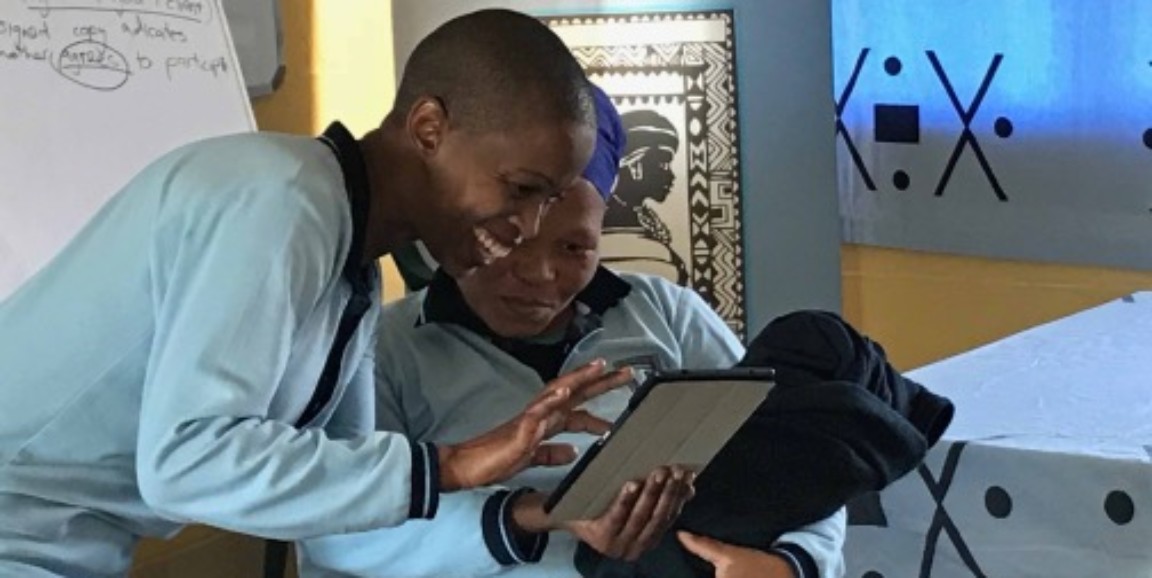Feeding infants formula with invisible pathogens can cause life-threatening diarrhea and introducing solid foods too early can result in nutrient deficiencies. For reasons like these, the World Health Organization and UNICEF recommend feeding infants only breast milk for the first six months, when possible.
But this guideline is rarely followed in developing countries with limited access to health care and education. In South Africa, for instance, less than a third of new mothers exclusively breastfeed for that long.
Now, Stanford Medicine researchers are trying to improve breastfeeding outcomes in South Africa by developing and testing an educational video series. These videos discuss topics such as the health benefits of breastfeeding and what to do if breastfeeding isn't possible. After running a 19-month study, they found that video-based counseling using computer tablets can promote breastfeeding in under-resourced settings as effectively as in-person counseling.
The study was led by Maya Adam, MD, a clinical assistant professor of pediatrics and the director of Health Media Innovation at Stanford. Adam and the research team partnered with health care workers from Philani Maternal Child Health and Nutrition Trust who shared the video series -- called the Philani MObile Video Intervention for Exclusive breastfeeding -- with new and expecting mothers in their South African communities.
"Thankfully, more and more mothers, even in the hardest-to-reach communities, are gaining access to mobile technology," said Adam. This access opens up the opportunity to promote breastfeeding in these communities by designing entertaining, educational content and delivering it on tablets, she said.
Details of the study were published Sept. 28 in PLOS Medicine.
Entertainment education
To create the videos, Adam collaborated with Stanford's Digital Medic team in South Africa to harness the power of "entertainment-education." The idea is to draw viewers in with dramatic narratives, compelling visuals and soundtracks, Adam said.
The 13 videos are short: four minutes or less. A local South African artist illustrated the health and motivational messages and other local women narrated them. For example, one animated video depicts the story of a mother explaining to her daughter why she breastfed -- against her own mother's advice. These illustrations were interspersed with personal narratives from three South African celebrities and four community mothers.
"Some videos were more geared towards the early newborn phase, like the common challenges video. And some were geared towards later phases, like the one aimed at supporting moms who need to return to work," said Adam.
To test the video series' ability to provide effective education and encourage breastfeeding, Adam's team ran a controlled trial involving 84 community health workers, or "mentor mothers," from the Philani Maternal Child Health and Nutrition Trust. Each mentor recruited and counseled a group of mothers in her community, with 1,502 mothers participating in the study.
The mentors were randomly assigned to either the control or intervention group. One half, the traditional mentors, used only face-to-face breastfeeding counseling, while the intervention mentors spent part of their home visits showing Stanford's videos on tablets that the study provided. The videos were viewed 6,435 times during the visits.
As good as face-to-face
Throughout the study, all mentor mothers counseled their clients on infant feeding during regular home visits starting in the last trimester of pregnancy and lasting until the baby was 5 months old. The intervention mentors chose specific videos to meet the client's needs.
Each time a baby turned 1 month old or 5 months old, the mentors surveyed mothers' feeding practices and maternal knowledge.
The researchers observed no significant differences between breastfeeding outcomes for both mentor groups. For example, overall, about 54% of all participants reported during the 5-month survey that they were breastfeeding exclusively. The similarity of these outcomes suggests that the videos were as effective as traditional counseling when used to replace part of the home visit.
However, the videos had the benefit of allowing intervention mentors to do other health-related tasks for the families, including monitoring other children's growth, updating and keeping medical records and completing referral forms, Adams said.
Mentor mothers also reported that carrying a tablet increased their credibility within the community, said Adam.
"My hope is this research will help policymakers and funders see the great potential in equipping community health workers of all levels with mobile devices," said Adam. "The mentors are heroes, fighting for their communities at the frontlines of health. They deserve to have the technological tools they need."
Photo by Maya Adam






